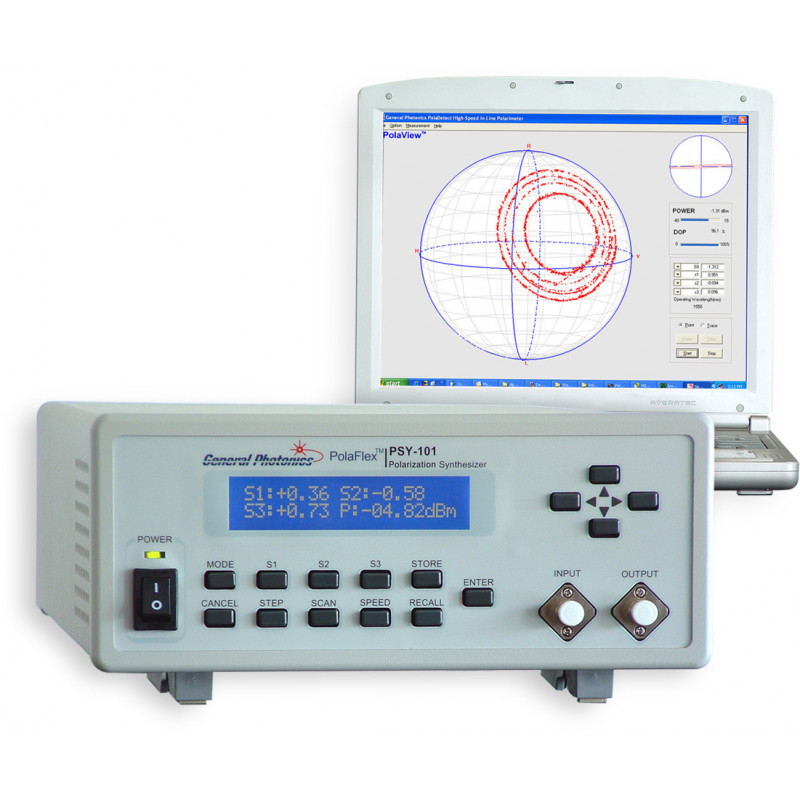Polarization Synthesizer/Analyze

Reference number: GPC-PSY-101
The Polarization Synthesizer PSY-201 generates and maintains any state of polarization (SOP), regardless of the input SOP.


Reference number: GPC-PSY-101
The Polarization Synthesizer PSY-201 generates and maintains any state of polarization (SOP), regardless of the input SOP.

Need more info?
Contact our expert.
Our Team
Description
The Polarization Synthesizer PSY-201 generates and maintains any state of polarization (SOP), regardless of the input SOP. It combines General Photonics? patented controller, polarimeter, and control algorithms into an instrument that functions as both an SOP generator and a polarization analyzer.
The generated SOP and the corresponding Poincaré representation are displayed on a PC via USB interface. Output SOP can be defined by Stokes parameters, by manually tuning the SOP to any point on the Poincaré sphere or by optimizing a polarization-dependent metric. Once a desired output SOP is found, the instrument maintains the SOP against input SOP fluctuations.
The user can generate 6 distinct SOPs (0°, 90°, ± 45°, RHC and LHC) for Mueller matrix calculations, or select any of the 6 states at the touch of a button.
The Polarization Synthesizer PSY-201 contains programmed SOP traces of common polarization variations. It can also function as a polarization scrambler, generating SOP scans with user-defined parameters and, with the internal polarization controller disabled, it can function as an in-line polarimeter, displaying the instantaneous SOP and DOP of the input light beam.
The Polarization Synthesizer PSY-201 as well as other General Photonics instruments are shipped with manual and accessories in a padded aluminum case.